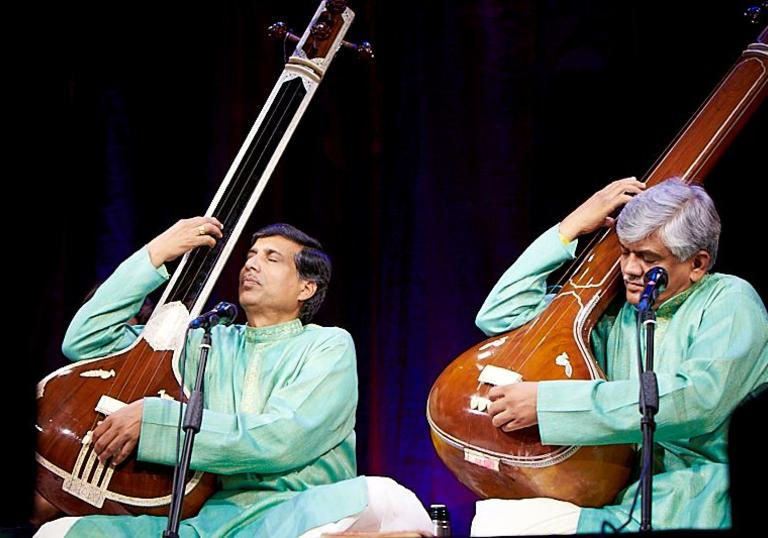mantra practice, a journey of trust.
- Manish Vyas
- Feb 14, 2019
- 4 min read
In India, mantras have been devised for many, many different purposes, for many different tasks and utilities. So practically, there is a mantra fro every day to day activity; there is a mantra for different ceremonies or rituals, and there are also mantras to remove some troubles in life, for example, either a physical sickness or ailment; or there could be issues on a psychological level or emotional level, within a family or within our surroundings.
So one thing that a mantra practitioner has to very clearly remember is, that for example if someone is going through, let’s say some financial crisis, so he may be suggested to chant a mantra of the deity Lakshmi - so Lakshmi represents the wealth - the inner and the outer wealth; so a mantra for Laskshmi - so a mantra for Lakshmi can be for example, Om Sri MahaLakshmiyei Namaha; so if one is suggested this mantra to solve some kind of financial crisis, let us say, then this mantra is actually not translated as, “O Lakshmi give me money” Om Sri MahaLakshmiyei Namaha does not mean, “Lakshmi give me some money”, no. This mantra simply translates as, “I bow down to the great Lakshmi, I bow down to the energy and vibration of the Great Lakshmi.” In that practice of chanting, in that practice of invoking the energy of Lakshmi, the purpose is that through this chanting, one surrenders to that particular energy, one does not go to any kind of demand or expectation - one may have a certain prayer, one may have a certain intent, but the focus should be completely on the vibrations and sound of that particular mantra pronounced and chanted correctly… and expecting nothing in return as such.
So, in a way, the suggestion is that when you practice the mantra of any deity, for example: Lakshmi, Ganesha, Shiva, Krishna… and there is some kind of area in life that one wants to resolve, there should be simply a prayer and surrender to whatever the outcome may be.
Sometimes also happens that people ask me, or sometimes my teacher, for some solution for problems, like they want their kids to pass the university, or they want their kids to get married, and what can be the mantra practice for that. So, of course, as I said, for every purpose and for every problematic situation, there has been a mantra prescribed for that particular situation. But what one must remember is that in that practice one should simply accept at the end of the day that whatever the result may come, that was the right thing for that particular situation. It may be that the result is not what we expected, but we must trust the higher energies, the higher sources that when we invoke Lakshmi ir Saraswati, or Ganesha, that we let them decide what is the right thing for us. So sometimes when we are praying for a particular purpose, but the result may be something else, we can simply accept it gracefully that, “maybe my need was something else but the higher source knows what is right for me and that is exactly what has been provided.”
So many times many mantra singers, or some yoga teachers, especially in “kundalini yoga,” they kind of claim that, “this mantra will do this, or this mantra will heal, or this mantra will do that,” and there one should be a little careful suggesting such things because of course there is no hundred percent guarantee of anything… so what one can do is to simply remain focused on the practice and remain committed and sincere in the practice, but at the end of the day, leave it up to the higher energy, to the higher sources, to existence - and fully trust in whatever the outcome may be. That is why also in Bhagwad Gita, one of the highest statements of Lord Krishna was, Karmanye Vadhikaraste Ma Phaleshu Kadachana... meaning, simply focus on the action that you need to do; simply focus on your karma, and don’t focus on the result, don’t expect the result. In that way, the energy remains light and relaxed and one can simply enjoy the practice, and the focus is not on the goal or the result; and then there is a graceful acceptance of whatever may come.
Do your duty and be detached from its outcome, do not be driven by the end product, enjoy the process of getting there, translated from Sanskrit "Karmanye Vadhikaraste Ma Phaleshu Kadachana, Ma Karma Phala Hetur Bhurma Tey Sangostva Akarmani"
Like my spiritual teacher used to always say for himself, that his mantra was: “teri razaa poori ho” which literally translated as, “let thy will be done” - not MY will be done, but THY will be done. So, in the same way, the same attitude can be applied in the mantra practice, that whenever any particular energy is invoked for any particular purpose, there should be complete surrender, trust and patience given and dedicated to that energy and not focussing on what the outcome may be.
I think that’s the best attitude one can keep during a mantra practice and then remaining in total acceptance of whatever may come or whatever may not come. Whatever happens should be accepted wholehearted and gracefully.






Comments